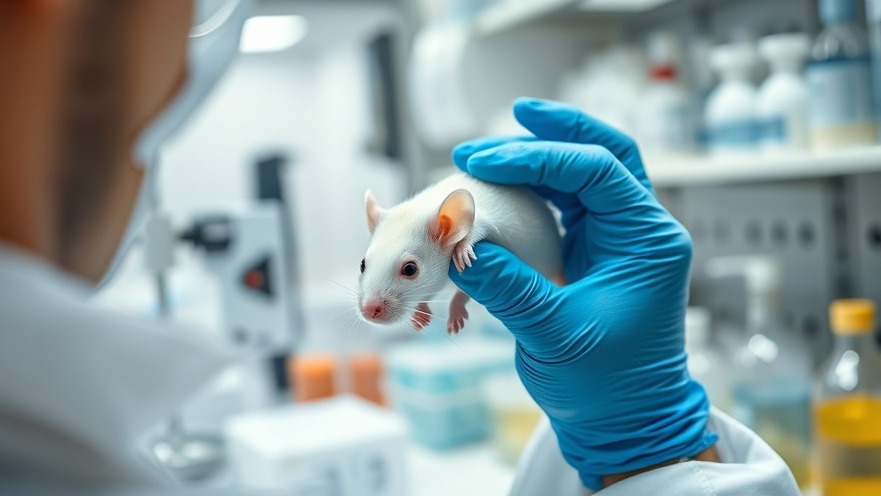
Revolutionizing Preclinical Testing: The Flycode System
The recent breakthrough by researchers at the University of Zurich (UZH) marks a significant advancement in antibody testing methodologies. Traditionally, testing of drug candidates required extensive use of laboratory animals, as each antibody was analyzed individually. This process was not only time-consuming but also ethically challenging due to the high number of animals needed for preclinical trials.
The innovative Flycode system allows for the simultaneous analysis of up to 25 different antibodies in a single mouse. This advancement paves the way for a drastic reduction in the number of animals required for testing, which can potentially decrease usage by a factor of 100. This marks a pivotal shift in pharmaceutical preclinical testing and reflects growing concerns about the ethical implications of animal testing.
Understanding the Mechanism: How Flycode Works
At the heart of the Flycode technology are cleverly designed protein fragments called "flycodes." These function as barcodes for the antibodies, allowing researchers to track and analyze each one individually after administration. This innovative approach enables the extraction of complex plasma or tissue samples from the mice, enhancing the specificity and reliability of the data collected.
By utilizing flycodes, each antibody can be separated and analyzed, resulting in richer data outputs without the need for multiple animals. As Markus Seeger, a leader in the study, notes: "Our results show that the flycode technology delivers high-quality preclinical data on the investigated antibodies. We get much more data with fewer mice, and the data quality is improved as analyses can be directly compared." This statement highlights the importance of not just reducing numbers but also improving the validity of the research findings.
Enhancing Efficiency and Efficacy in Drug Development
One of the key factors that determine the approval of new drugs is their ability to bind to specific target structures in the body and remain effective without excessive spread to non-target organs. The Flycode system has demonstrated that antibodies can accurately target structures like the epidermal growth factor (EGF) receptor in tumor cells, even when mixed with other antibodies. This effectively maintains the efficacy of the therapies being tested.
The implications of this are enormous; with fewer animals needed and faster processing times, researchers can work more efficiently through drug candidates. As the Flycode system continues to be adopted, it offers a streamlined approach to drug discovery that could significantly shorten the preclinical stage of developing new therapies.
Future of Animal Testing and Drug Discovery
The flycode technology is positioned to transform the landscape of drug testing significantly. This system not only addresses ethical concerns regarding animal use but also enhances the scientific process by providing high-quality data efficiently. As this technology is developed further, it may lead to fewer regulatory hurdles and accelerated drug approval timelines.
Additionally, with the increasing scrutiny on animal welfare in research, advancements like the Flycode system may foster greater public acceptance of pharmaceutical development practices. Health practitioners and researchers alike must embrace such innovations, as they can lead to more humane and effective treatment developments.
Action Steps: How Practitioners Can Stay Informed
As concierge health practitioners focused on cutting-edge treatment options for patients, staying informed about technological advancements like the Flycode system is crucial. Not only can these innovations impact drug availability and efficacy, but they also hold the key to sustainable practices in medical research.
Engaging in continued education regarding new research methodologies, attending relevant workshops, and participating in discussions surrounding ethical considerations in drug testing will position practitioners as informed advocates for their patients. Staying ahead of such medical news ensures that practitioners can offer the best possible care, informed by the latest scientific breakthroughs.
 Add Row
Add Row  Add
Add 






Write A Comment